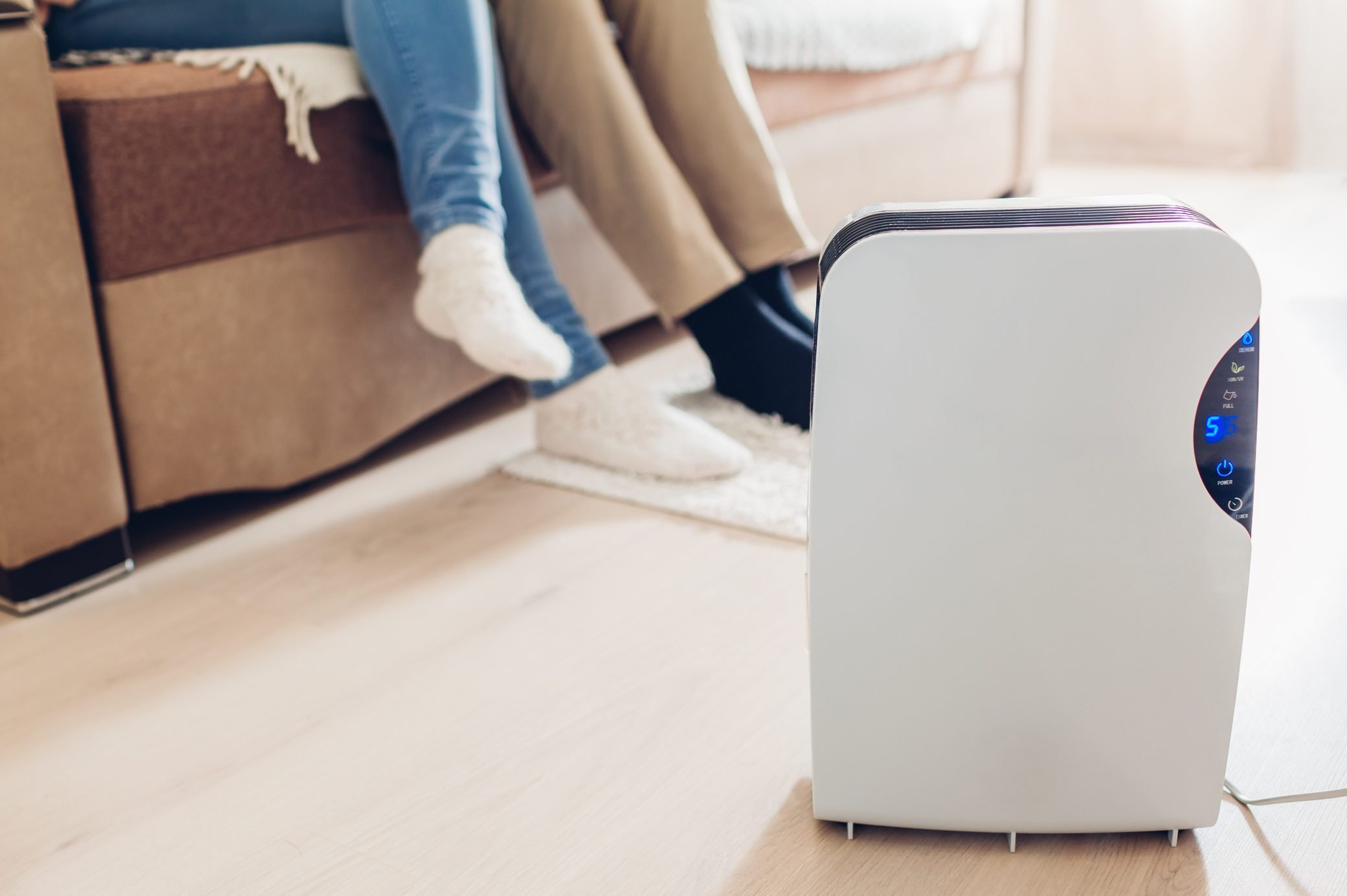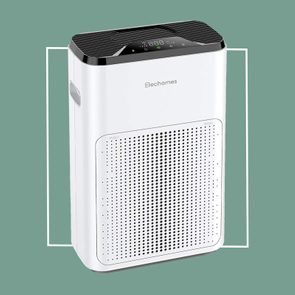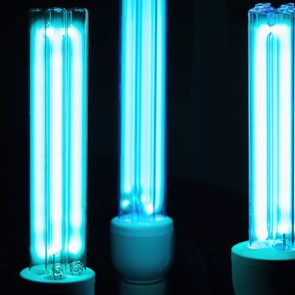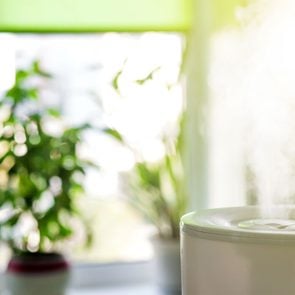Air Purifier vs. Humidifier: Which is Right for You?
Updated: Mar. 09, 2021
Here's how to tell whether an air purifier or humidifier will best keep your symptoms in check. Here's how each device works and expert tips for picking the best one.
Our editors and experts handpick every product we feature. We may earn a commission from your purchases.
Air purifier vs. humidifier
Do you have a runny nose or a cough? You might be wondering if a humidifier or an air purifier could help your symptoms. But which one do you choose?
Humidifiers and air purifiers don’t do the same thing. Here’s what they do to the air in your home and how to figure out which device is the one you might need.
How does an air purifier work?
“Air purifiers remove pollutants from the air in your home, such as dander, pollen, mold spores, dust, and bacteria,” says Peter Bailey, MD, a family practice physician in Oakland, California.
Most work by capturing particles in a filter and then returning the filtered air back to the room. Some air purifiers use other technologies, such as ionization or ultraviolet-C (UVC) light.
Others, called ozone generators, release ozone to sanitize the room. The Environmental Protection Agency (EPA) recommends against ozone generators because ozone is harmful to health.
How does a humidifier work?
Humidifiers add moisture to the air using a number of different technologies.
Certain devices boil water, turning it into water vapor and releasing a warm mist in the air. Some use a wick filter, which absorbs water. A fan blows air through the filter, releasing a cool mist in the air.
And other humidifiers vibrate at an ultrasonic frequency to create water droplets.

Do I need a humidifier or air purifier?
Both humidifiers and air purifiers can benefit your health, but they do so in different ways, says Dr. Bailey.
Generally speaking, “If you have allergies, asthma, or respiratory/lung issues, an air purifier is what you will want,” he says. That’s because particles in your home—think dust, dander, and mold—can trigger allergy symptoms, like a runny nose or watery eyes. These same allergens can aggravate asthma.
If your symptoms are due to a cold, however, a humidifier is the way to go. It won’t make the cold go away, but it could improve your symptoms. “If your chest, nose, and ears are congested, the humidity in the air helps to break that congestion up and allows these channels to drain,” explains Dr. Bailey.
Here’s a closer look at various symptoms and whether an air purifier or humidifier would be best.
Runny or stuffy nose: humidifier or air purifier
A runny or stuffy nose can be a symptom of a cold or allergies, says Dr. Bailey. If you have other symptoms, like lethargy, achy joints, or a sore throat, you likely have a cold, and a humidifier could help relieve your symptoms.
On the other hand, if your runny nose is accompanied by watery eyes and sneezing, or if it acts up in certain seasons, like spring and fall, then it’s probably allergies. In that case, an air purifier is the way to go because it cleans indoor air of the allergens you’re reacting to.
“These particles could include dust mites, mold, pet dander, and cockroaches,” says Melanie Carver, chief mission officer at the Asthma and Allergy Foundation of America. Pollen and outdoor air pollution can also seep into your home and affect your indoor air quality.
“If you have asthma and allergies, it’s a good idea to consider use of an air cleaner as part of a multipronged strategy to help limit your exposure to allergens and asthma triggers,” Carver says.
Coughing: air purifier
While coughing can be a sign of illness like a cold, it can also be a sign of a more serious lung issue, like asthma.
“A big factor is determining when the cough arises,” Dr. Bailey says. “If the cough usually presents itself when the air quality is poor or you are winded but fades in normal circumstances, it may be asthma.”
Choose an air purifier over a humidifier when that’s the case. “The air purifier will remove harmful pollutants in the air that can exacerbate or worsen your condition,” says Dr. Bailey.
Dry skin: humidifier
Dry indoor air, especially common in winter months, can leave your skin, lips, and nose dry and cracked. “A humidifier can help relieve dry skin by putting moisture back into the air and rehydrating our skin cells,” says Dr. Bailey.
Wheezing: air purifier or humidifier
“Wheezing is generally caused by inflammation or constriction of your airways,” says Dr. Bailey. The most common causes are asthma, the common cold, or chronic obstructive pulmonary disease (COPD).
COPD is a group of inflammatory lung diseases that includes chronic bronchitis and emphysema. Smoking is the biggest risk factor for COPD, and coughing and shortness of breath are some of the main symptoms.
First, see a doctor to determine the cause of your wheezing. If it’s asthma or COPD, go for an air purifier. “Any airborne particulates, like pet dander, dust, and pollen can make the inflammation and narrowing of the air passage worse,” Dr. Bailey says. “This would cause further congestion and louder wheezing. By removing these particulates with a purifier, it removes that risk of worsening your condition.”
If your wheezing is from a cold, a humidifier can help reduce congestion in your nose and chest. And that’ll help you breathe easier.
Air purifiers: What to know before you buy
Filter, UVC light, ionization, ozone… With so many air purifier options, how do you know which type will best rid your house of allergens?
The gold standard for filtering particles from the air is a portable air purifier with a high-efficiency particulate air (HEPA) filter. This type of mechanical air filter is designed to trap 99.97 percent of dust, pollen, bacteria, mold, dander, and any airborne particles as small as 0.3 microns.
“The HEPA filter is tried and true, with no bad side effects,” says Emily Jones, a researcher in the Healthy Buildings Program at Harvard University’s T.H. Chan School of Public Health.
Ionizers sound like an extra-fancy way to get the job done, but Jones warns against them. While they can remove particles from the air, in many cases the particles remain in the room, settling on the floor or surfaces.
They can also generate ozone as a byproduct, which is harmful for anyone and particularly harmful for children, the elderly, and people with respiratory conditions like asthma.
Air purifiers that use UVC light are often marketed as ways to kill viruses, including Covid-19. The effectiveness of these devices is up for debate. Not only that, but they have the potential to produce ozone.
Also worth skipping: air cleaners that intentionally produce ozone.
Humidifiers: What to know before you buy
You need to be careful with humidifiers as well. One danger with humidifiers is that they can start growing bacteria and mold.
“You have to clean it every day or it will make you sick,” says Patricia Fabian, an indoor air quality expert and associate professor at Boston University’s School of Public Health.
Ultrasonic humidifiers pose their own concerns. Because they break up the water into tiny droplets, the contaminants in water are also made smaller and can become inhalable.
A study published in 2020 in the journal Indoor Air found that operating an ultrasonic humidifier with tap water resulted in particulate matter concentrations on par with a polluted city. Using distilled water removes that risk, however.
When humidity levels rise
The point of a humidifier is to raise moisture levels. But too much of a good thing can harm your health in new ways. In your quest to combat too-dry air, be sure you don’t make it too humid, either.
“If indoor humidity is above 50 percent, fungi or mold will thrive,” Carver says. “Mold spores can get in your nose and cause allergy symptoms. They can also get in your lungs and trigger asthma.”
You can measure humidity in the air with a hygrometer, like this one from ThermPro. Hydrometers are often part of indoor thermometers. Levels should be kept between 30 to 50 percent, says Carver.
Bottom line: air purifier vs. humidifier
The right air purifier can clean your air and might improve your allergy and asthma symptoms. Your best bet is a device that uses a HEPA air filter.
Humidifiers, on the other hand, can be used as needed to relieve cold symptoms or dry skin—just be sure to keep yours clean and monitor the humidity levels in your home.
Next, how to tell the difference between allergies vs. a cold.



















